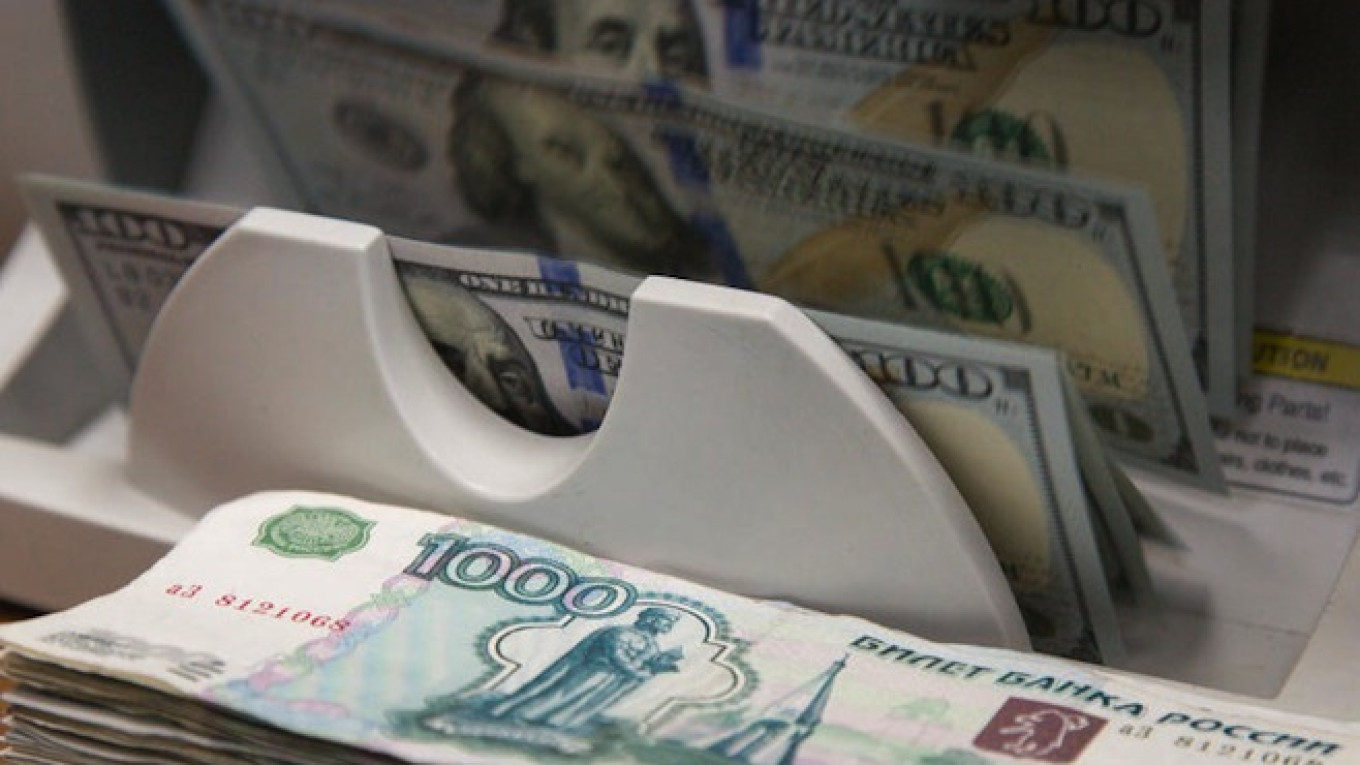The Russian currency weakened Friday to its lowest level against the U.S. dollar since records began as evidence mounted of direct Russian military involvement in an escalating conflict in Ukraine.
The value of the ruble dropped sharply after trading opened in Moscow, and by 10:27 a.m. a dollar was worth 37.01 rubles — passing the 37-ruble mark for the first time ever.
The currency later reversed initial losses and was trading around 36.9 rubles by midday, according to data from The Moscow Exchange.
The historical low comes amid multiplying indicators that the Russian military is directly engaged in supporting separatists in the ongoing civil war in Eastern Ukraine.
Moscow stock exchanges and the ruble plunged Thursday as Ukrainian President Petro Poroshenko accused Russia of a "direct invasion" and the North Atlantic Treaty Organization released photographs allegedly showing Russian armored columns inside the former Soviet country.
The ruble has weakened steadily since the end of 2013, with the previous record low being set in March as the Kremlin annexed the southern Ukrainian Black Sea region of Crimea.
A Message from The Moscow Times:
Dear readers,
We are facing unprecedented challenges. Russia's Prosecutor General's Office has designated The Moscow Times as an "undesirable" organization, criminalizing our work and putting our staff at risk of prosecution. This follows our earlier unjust labeling as a "foreign agent."
These actions are direct attempts to silence independent journalism in Russia. The authorities claim our work "discredits the decisions of the Russian leadership." We see things differently: we strive to provide accurate, unbiased reporting on Russia.
We, the journalists of The Moscow Times, refuse to be silenced. But to continue our work, we need your help.
Your support, no matter how small, makes a world of difference. If you can, please support us monthly starting from just $2. It's quick to set up, and every contribution makes a significant impact.
By supporting The Moscow Times, you're defending open, independent journalism in the face of repression. Thank you for standing with us.
Remind me later.


